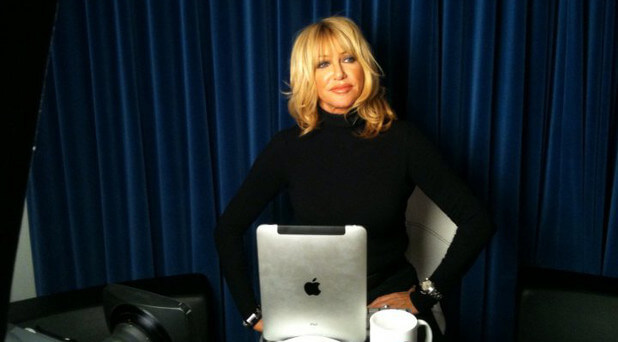When Hollywood starlet Suzanne Somers hit her mid-30s, she started feeling lousy and didn’t know why. The popular actress and best-selling author went from doctor to doctor without getting any relief for the unexplained mood swings, weight gain and serious PMS that plagued her.
Eventually, she realized she was suffering from the classic symptoms of perimenopause. Now, in a new book—I’m Too Young for This!—Somers chronicles her journey through the challenging rite of passage for women and offers advice to help them cope.
In an interview with Newsmax Health, the Three’s Company star explains there are many remedies that help ease perimenopause. But the first step is recognizing the symptoms of the condition, which she likens to a medical version of the supporting cast of Disney’s Snow White.
“I call it the Seven Dwarves: Itchy, Witchy, Sleepy, Sweaty, Bloated, Forgetful, and All Dried Up,” says Somers cheerfully. “What I try to teach in this book is that those dwarves I just mentioned are symptoms. … It’s your hormones.”
Perimenopause, which means “around menopause,” is the time when a woman’s body begins moving toward menopause. Hot flashes, mood swings, sleep problems and vaginal dryness are common. Perimenopause ends once a woman goes a full year without a menstrual period, after which she has reached menopause.
It typically begins when a woman hits her 40s. But as Somers notes, it can begin as early as the 30s as the uneven rise and fall of estrogen—the main female hormone—begins to occur during this phase of life.
“It used to be that you would start declining in hormones closer to age 50. We live on a polluted planet, we’re under the greatest environmental assault in the history of mankind and the toxins are accelerating aging. Stress is accelerating aging,” she says.
Those circumstances set in motion a “cascade” of biological events that are making women experience perimenopause earlier, she says.
But you can moderate the impacts by adopting a healthy lifestyle.
“What you eat, what you think or what you put on your skin, what you clean your house with is all very significant, and if you catch this now … you can sail through perimenopause and sail through menopause and never have to experience the suffering,” she says.
Somers believes many doctors aren’t trained adequately to recognize perimenopause, which can make it difficult for some to get the attention they need.
“I remember one doctor saying, ‘Oh, you’re probably in perimenopause.’ It was like that, like it’s no big deal,” she recalls. “And then another doctor said to me, ‘Oh, your thyroid’s a little off.’ I got that wave of the hand again. … So when a doctor says your thyroid’s a little off and then doesn’t do anything about it, you’re going to be in trouble.”
To deal with it, Somers says it’s important for a woman to replace the hormones lost naturally as she ages with bioidentical hormones derived from natural sources, as opposed to synthetic hormone replacement therapy, which studies have shown can raise the risk of breast cancer in some women.
“Bioidentical hormones are biologically identical to the human hormone, an exact replica of what of our body makes or once made. It’s made from plants and soy extracts. It’s not patentable because it comes from nature,” she says.
She adds that bioidentical hormones can boost mood as well as a woman’s overall health.
“Maybe you could tough it out and feel lousy the rest of your life,” she says. “But why would you when you could have [a higher] quality of life?”











































